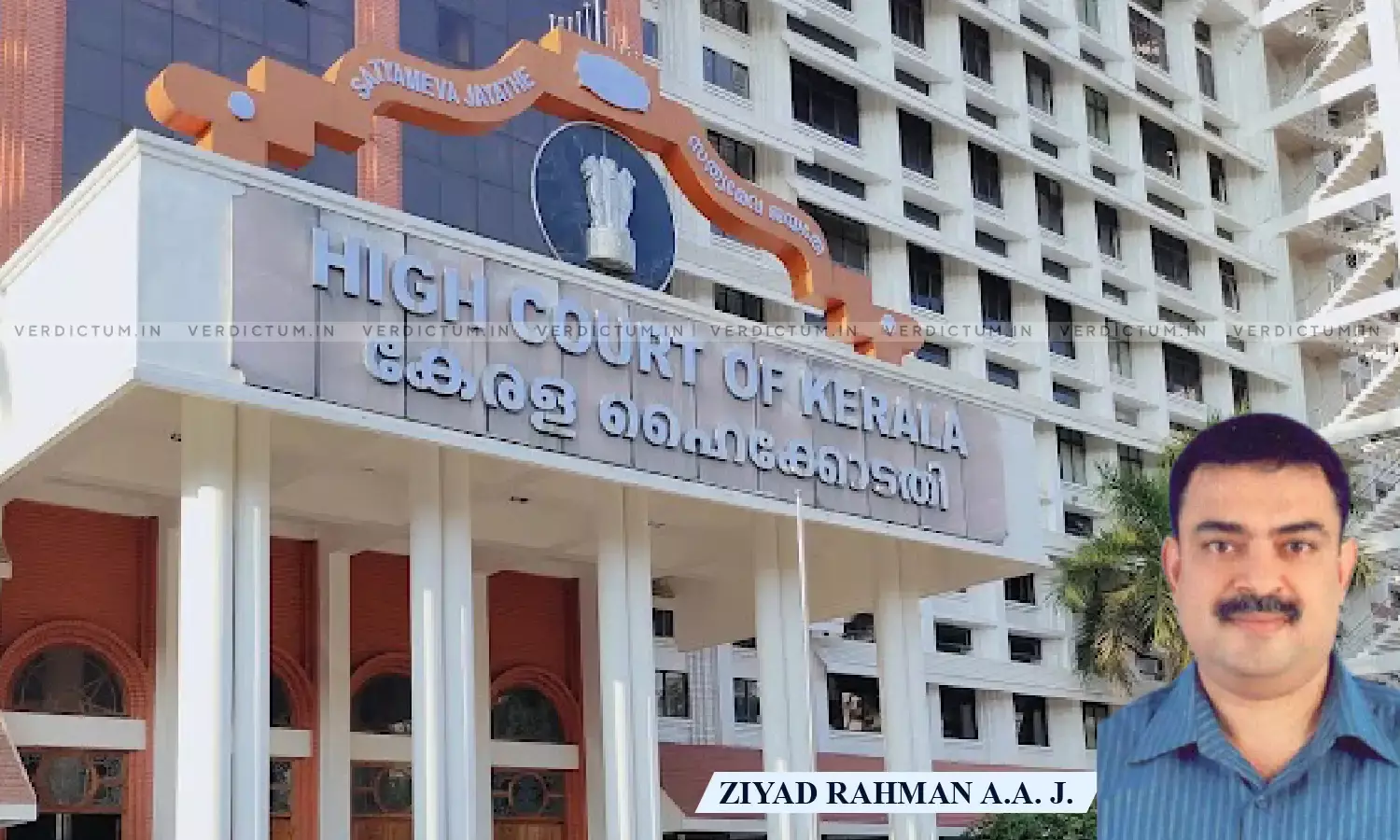Depriving A Person Of His Article Or Amount On Mere Accusation Until Same Is Proved Through Factfinding Mechanism Of Trial Is Not Justifiable: Kerala HC

While highlighting that if there are means to secure the recovery of the articles or cash, there is nothing wrong in adopting such means without causing any prejudice to the rights and interests of any of the parties, the Kerala High Court held that the ultimate purpose is to ensure the preservation of the articles seized as part of the investigation and not to enrich any party or deprive any person, based on the accusations yet to be proved.
Therefore, a balanced approach must be made by keeping in mind the rights and interests of both the parties, i.e., the State and the accused, in equal proportions, added the Court.
A Single Judge Bench of Justice Ziyad Rahman A.A. observed that “until the trial is completed and the accused is found guilty, the allegations based on which the recovery of such articles was made are mere accusations yet to be proved. Therefore, depriving a person of his articles or amounts on mere accusations until the same are properly proved through the factfinding mechanism of the trial is not justifiable”.
Advocate Babu S. Nair appeared for the Petitioner whereas Advocate A. Rajesh appeared for the Respondent.
The brief facts of the case were that the petitioner is a politician and was elected as a member of the Kerala Legislative Assembly in 2011 and 2016. He was also the candidate for the Assembly elections conducted in the year 2021 for the very same constituency. There was a complaint filed against the Petitioner that he had amassed wealth disproportionate to his known and legal sources of income. A preliminary inquiry was conducted by the Vigilance and Anti-Corruption Bureau Special Cell. After inquiry, it was found that the Petitioner amassed wealth beyond his known sources of income by a margin of 166%. Hence, a case was registered against the Petitioner under Sections 13(2) read with 13(1) (e) of the Prevention of Corruption Act 1988 read with 13(1) (b) of the Prevention of Corruption (Amendment) Act, 2018.
As part of the investigation, a search was conducted in the house. During such search, five documents, gold ornaments weighing 16.21 gm, and Indian currency notes concealed which was under a fully covered cot in the bedroom on the ground floor of the house were found. Indian currency notes were remitted to the Sub treasury as per the order passed by the Judge. The Petitioner therefore sought for release of the said currency notes under Section 451 CrPC. On the objection of the second respondent, the said application was rejected by the Judge. Consequently, the Criminal Miscellaneous petition was filed.
After considering the submission, the Bench noted that the explanation offered by the petitioner that the said amounts were the contribution received from the general public towards election expenses did not tally with the declaration of the expenses he made before the Election Commission.
While noting that the Petitioner did not pay an income tax return till the financial year 2015-2016, and surprisingly, he submitted returns, including the amount in question, and paid an amount of Rs.10,47,410/- as the income tax, the Bench pointed that such findings on the explanation of the petitioner regarding the source of the amount, cannot be said to be erroneous, prima facie.
The Bench highlighted that as far as it is concerned with the interim custody of seized articles, the order to be passed under Section 451 CrPC is only intended to make a provisional arrangement regarding the interim custody of the articles seized during the pendency of the trial.
Referring to the Judgment delivered by the Supreme Court in Smt. Basavva Kom Dyamangouda Patil v. State of Mysore and Anr. [(1977) 4 SCC 358], Sundarbai Ambalal Desai v. State of Gujrat [2003 2 KLT 1089 (SC)] and Suresh Serve V. v. State of Kerala (2020 (3) KLT 395), the Bench expressed that it is not necessary to keep the articles in the custody of the court for a period more than required.
The Bench further emphasized that while passing an order under Section 451 CrPC, the court should adopt a more cautious approach and should ensure that sufficient safeguards are put in place to recover the article or amount when the necessity arises.
Therefore, while pointing that as the purpose is to ensure that the disproportionate wealth amassed by the Petitioner is preserved, the High Court allowed the Petitioner’s application to release the seized amount subjected to the condition that the Petitioner should execute a bond for the said amount with two solvent sureties along with a bank guarantee.
Cause Title: K. M. Shaji Vs. State of Kerala, And Anr. [Neutral Citation: 2023/KER/60754]
Click here to read/download the Order

